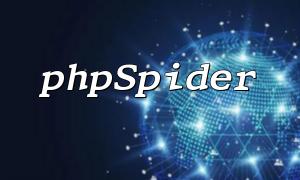In modern web development, optimizing PHP code loading efficiency is an essential step to improving website performance and user experience. This article explores various PHP code loading techniques and best practices aimed at helping developers enhance their project performance and achieve better rankings on search engines.
When it comes to PHP code loading, understanding its working mechanism is crucial. PHP is a server-side scripting language. When a user requests a PHP file, the server parses the file and generates the corresponding HTML. This process involves multiple steps, including file lookup, parsing, and execution. Therefore, optimizing PHP code loading speed can directly impact webpage loading time.
A good file structure is the foundation for PHP code loading. Organizing code into several modules enhances code maintainability and reusability. Here is an example of a basic file structure:
By organizing your PHP code into different directories, you can quickly locate the required files, improving loading efficiency.
An autoloader is an effective tool for improving PHP code loading efficiency. Using Composer's autoload functionality reduces the need for manually including files and enhances code organization. You just need to add the following lines to your composer.json file:
Once the configuration is complete, running the composer dump-autoload command will generate the autoloading for your classes. This way, whenever you need to reference a class, PHP will automatically load the required file, thus improving performance.
In addition to file structure and autoloading, optimizing the code itself is also crucial for improving loading efficiency.
Using caching can significantly speed up PHP code loading. You can use OPcache to accelerate the execution of PHP scripts.
Properly configuring OPcache parameters can effectively improve script loading efficiency.
In PHP development, avoiding large and all-encompassing solutions and keeping the code simple can help reduce file complexity and loading time.
Each new version of PHP includes several performance optimizations. Using PHP 7 and above can significantly improve execution speed and reduce memory consumption. Therefore, keeping your PHP environment up-to-date is a simple yet effective way to enhance performance.
By understanding PHP's loading mechanism, using a proper file structure, applying autoloading, utilizing caching mechanisms, and continuously optimizing code, you can effectively improve PHP code loading efficiency. These techniques and best practices not only enhance user experience but also help your website achieve higher rankings in search engines. Be sure to stay up-to-date with the latest developments in PHP to keep your projects on the cutting edge of technology.









